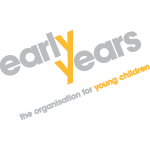Early Years: the importance of early education
Commencing on the path to economic stability and shared communities
Siobhán Fitzpatrick CBE, CEO of Early Years – the organisation for young children, highlights why the need to focus clearly on the delivery of effective early education and care as a solid building block towards improved social, educational and economic outcomes is vitally important.
In the coming months, we will see a number of important developments which will significantly affect the shape of future early childhood services in Northern Ireland. These will include Minister Poots officially launching minimum standards for childminding and day care services for children under 12 in October, the finalisation of proposals concerning the Early Years 0-6 Strategy in November and further progress being made on an OFMDFM Childcare Strategy before the end of 2012.
An unparalleled opportunity is presented to take  major steps to develop the educational attainment, care and wellbeing, and consequently the economic productivity, of the population of Northern Ireland through a programme of investment in young children. This early phase of life is where the essential ingredients for all later personal and professional engagement, including linguistic, cognitive, emotional, social and moral capacities, all progress at a more dramatic scale than at any other time. This is why effective early education and care which goes beyond cognitive learning to non-cognitive skills, essential for all future learning, successful social engagement and preparation for life (perseverance, motivation, ability to interact), is so vital.
major steps to develop the educational attainment, care and wellbeing, and consequently the economic productivity, of the population of Northern Ireland through a programme of investment in young children. This early phase of life is where the essential ingredients for all later personal and professional engagement, including linguistic, cognitive, emotional, social and moral capacities, all progress at a more dramatic scale than at any other time. This is why effective early education and care which goes beyond cognitive learning to non-cognitive skills, essential for all future learning, successful social engagement and preparation for life (perseverance, motivation, ability to interact), is so vital.
Effective early education and care is an essential element in minimising a variety of risk factors not only relating to educational attainment but also to poverty, community safety, justice, good relations, health and well-being and access to employment. It also provides the fundamental basis towards strong shared communities and shared education. The ‘shared education pathway’ begins in our pre-school settings, day nurseries and SureStart programmes operating across the region.
The above policy developments must address the following issues:
- The roll-out of an age-specific programme for two year olds incrementally across Northern Ireland allowing Statutory Nurseries, Private Day Care, SureStart services, community-based playgroups and child minders to deliver the programme.
- Appropriate resources to adequately support and train staff to ensure that all children are fully included within their services.
- The need for a training, qualifications and professional development strategy for the entire workforce working with this age group, recognising the valuable experience many staff will bring with them, to raise the profile, quality and standards of those working in the sector.
- Clear articulation of how education and care services for children aged 0- 3 will be enhanced.
- Clear alignment with other key policies and strategies involving parental leave entitlement, child care, play and leisure, and cohesion, sharing and integration.
- The role of early intervention in peace-building, reconciliation, education, health and the economy.
- The importance of including parents and families in programming as young children’s first educators.
 If they do, the early years sector in Northern Ireland will be able to rise to the challenge of providing high quality, affordable, accessible childcare and education for all children and families and lay the necessary foundations for all future economic and social successes in life.
If they do, the early years sector in Northern Ireland will be able to rise to the challenge of providing high quality, affordable, accessible childcare and education for all children and families and lay the necessary foundations for all future economic and social successes in life.
For further information on Early Years visit www.early-years.org or telephone 028 9066 2825.





